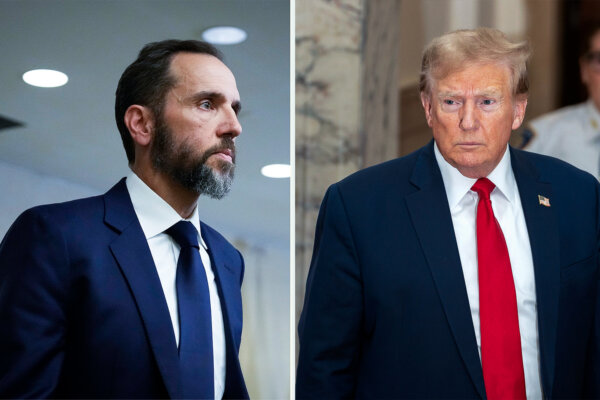
His attorneys cited Monday’s landmark Supreme Court decision on presidential immunity.
Former President Donald Trump’s attorneys on Friday asked a Florida judge to partially stay his classified documents case, citing the recent U.S. Supreme Court ruling that the former president is immune from certain charges related to official acts.
They requested that Judge Cannon place a pause on the case, except for ruling on special counsel Jack Smith’s request for a gag order that seeks to prohibit him from speaking about FBI agents and law enforcement officials.
“Resolution of these threshold questions is necessary to minimize the adverse consequences to the institution of the Presidency arising from this unconstitutional investigation and prosecution,” the Trump team wrote.
His attorneys wrote that “a partial stay would prevent further exploitation of judicial institutions and resources … in connection with“ the classified documents case, while the high court’s decision ”guts“ the special counsel’s office’s arguments that ”President Trump has ‘no immunity.’”
The former president’s attorneys also asked Judge Cannon for permission to file a briefing to make arguments about how the Supreme Court’s decision may impact the classified documents case. In that request, they asked for a July 26 deadline to provide that brief to the court, while the special counsel would have until Aug. 23 to issue a response.
Previously, the special counsel has argued that his office has not charged former President Trump with any official acts in the classified records, and the initial indictment accuses him of retaining sensitive materials after he left the White House in early 2021 and for allegedly obstructing federal officials’ efforts to obtain them. The former president has pleaded not guilty in the case.
In previous court filings to Judge Cannon, the former president’s lawyers have argued he should be rendered immune from prosecution related to his handling of the classified materials. They also said that decisions he made while he was president about the records should be considered official acts.
The special counsel’s office also refuted claims from former President Trump that 300 or so classified records that were found in his Mar-a-Lago residence should be considered personal records under the Presidential Records Act.
In their motion, former President Trump’s lawyers made reference to Supreme Court Justice Clarence Thomas’s concurring opinion, which was issued at the same time as the immunity ruling, in which he questioned if Mr. Smith was properly appointed as special counsel. Several outside legal experts, including several constitutional law professors and a former U.S. attorney general, have suggested that Mr. Smith was not lawfully appointed as special counsel by the Justice Department because he was then a private citizen when he was named.
Judge Cannon last month held a hearing on the arguments about whether Mr. Smith was lawfully named as special counsel. She hasn’t yet issued a ruling on the matter.
The long-term schedule of the classified records case is currently up in the air. Judge Cannon earlier in 2024 already scrapped a May trial date and has not set a new one.
If former President Trump is elected in November, he could terminate the special counsel’s case or he could pardon himself.
It’s the second time that former President Trump’s lawyers have used the Supreme Court’s immunity ruling to advance arguments in the myriad of legal cases he faces.
Regarding the gag order request, the former president’s lawyers have said that speech restrictions would imperil his First Amendment rights, namely as he campaigns for the presidency. Mr. Smith’s office, however, contends that his previous comments about FBI agents being armed during their search of his Mar-a-Lago property pose a threat to law enforcement.
The Epoch Times contacted the Justice Department for comment. Mr. Smith’s team has not filed a response as of Friday afternoon.









